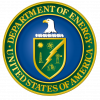High-dimensional Data-driven Energy optimization for Multi-Modal transit Agencies (HD-EMMA)
Transportation accounts for 28% of the total energy use in the United States and as such, it is responsible for immense environmental impact, including urban air pollution and greenhouse gas emissions, and may pose a severe threat to energy security. As we encourage mode shift from personal vehicles to public transit, it is important to consider that public transit systems still require substantial amounts of energy; for example, public bus transit services in the U.S. are responsible for at least 19.7 million metric tons of CO2 emission annually. As such it is absolutely crucial that we study the bottlenecks to energy efficiency in public transit and develop new algorithms that can help the public transit agencies, especially those that are still operating mixed fleets, which may consist of Electric vehicles (EVs), hybrids (HEVs), and internal combustion engine vehicles (ICEVs), optimize the operations by deciding which vehicles are assigned to serving which transit trips. Since the advantage of EVs over ICEVs varies depending on the route and time of day (e.g., the advantage of EVs is higher in slower traffic with frequent stops, and lower on highways), the assignment can have a significant effect on energy use and, hence, environmental impact. The Chattanooga Area Regional Transportation Authority (CARTA), in collaboration with academic partners at Vanderbilt University, the University of Houston, the University of South Carolina in addition to the Chattanooga Department of Transportation and the East Tennessee Clean Fuels Coalition, is developing mechanisms to precisely solve this problem. The key aspect of the project is the development of accurate energy consumption predictors developed using high resolution telemetry gathered from the fleet and use these models within a real-time operation and network guidance system.
